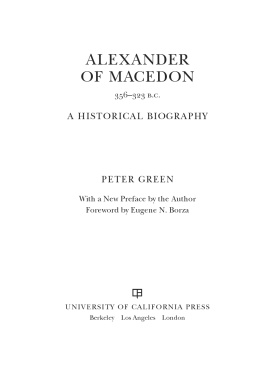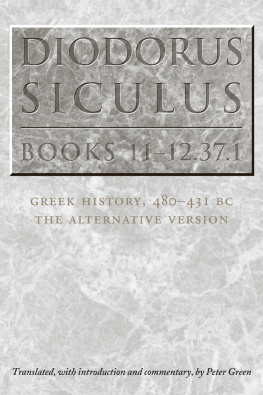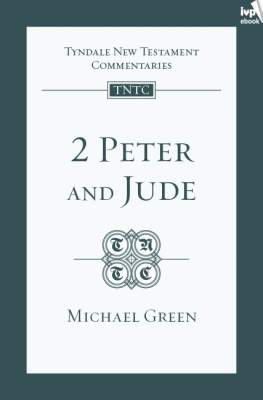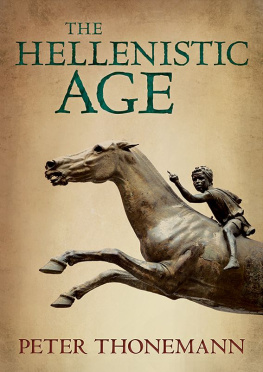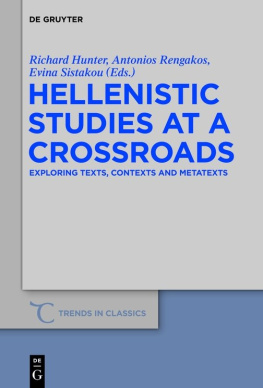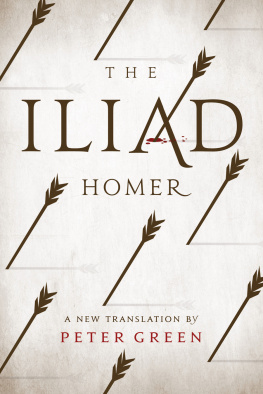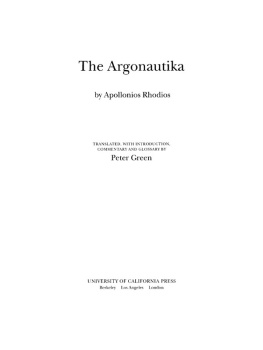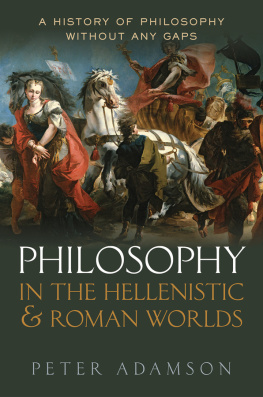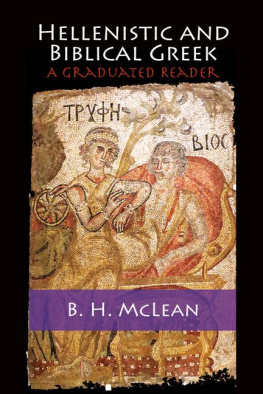Peter Green - The Hellenistic Age
Here you can read online Peter Green - The Hellenistic Age full text of the book (entire story) in english for free. Download pdf and epub, get meaning, cover and reviews about this ebook. year: 2008, publisher: Random House Publishing Group, genre: Non-fiction. Description of the work, (preface) as well as reviews are available. Best literature library LitArk.com created for fans of good reading and offers a wide selection of genres:
Romance novel
Science fiction
Adventure
Detective
Science
History
Home and family
Prose
Art
Politics
Computer
Non-fiction
Religion
Business
Children
Humor
Choose a favorite category and find really read worthwhile books. Enjoy immersion in the world of imagination, feel the emotions of the characters or learn something new for yourself, make an fascinating discovery.

- Book:The Hellenistic Age
- Author:
- Publisher:Random House Publishing Group
- Genre:
- Year:2008
- Rating:3 / 5
- Favourites:Add to favourites
- Your mark:
- 60
- 1
- 2
- 3
- 4
- 5
The Hellenistic Age: summary, description and annotation
We offer to read an annotation, description, summary or preface (depends on what the author of the book "The Hellenistic Age" wrote himself). If you haven't found the necessary information about the book — write in the comments, we will try to find it.
The Hellenistic Age — read online for free the complete book (whole text) full work
Below is the text of the book, divided by pages. System saving the place of the last page read, allows you to conveniently read the book "The Hellenistic Age" online for free, without having to search again every time where you left off. Put a bookmark, and you can go to the page where you finished reading at any time.
Font size:
Interval:
Bookmark:
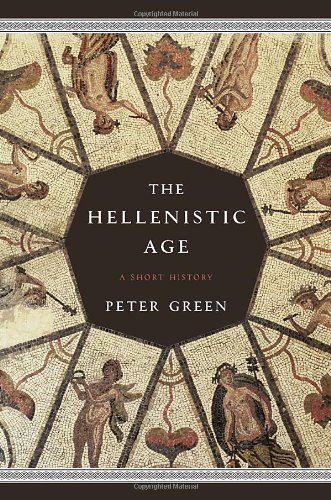
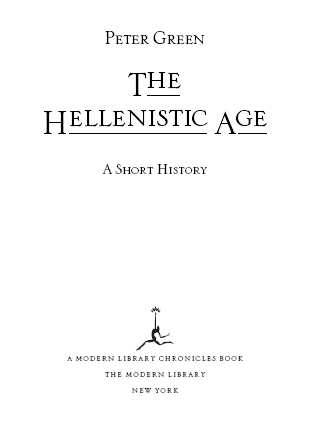
CONTENTS
The abiding importance of Alexander lies more in the field of moral and philosophical debate than in practical politics. The debate over legitimacy lasted a mere generation. After that Alexander was a symbol and nothing else. For subsequent ages he typified the world conqueror, and his territorial acquisitions were a standing inspiration and challenge to successive dynasts.
A. B. BOSWORTH
It is now impossible to consider the Hellenistic period in Greece as a uniform, essentially static epoch.
SUSAN E. ALCOCK
PREFACE AND ACKNOWLEDGMENTS
It is now seventeen years since my study Alexander to Actium: The Historical Evolution of the Hellenistic Age first saw the light of day (and well over twenty since the original text was first delivered to my publisher: I had a copy editor who specialized in minutiae). Since then the outflow of work on the Hellenistic age, already voluminous, has become a torrent. No scholar can master it all, and I have not, sensibly, attempted to do so. As those who compare the earlier work with this one will see, my essential views have not changed all that much; but I have learned a good deal from what I have read in the past two decades and am very glad of this opportunity to review, update, and where necessary modify my original arguments.
Once again, I study the three centuries of the Hellenistic age in a continuous ongoing diachronic narrative embracing the entire scene, rather than, like most writers on this subject, leading off with a condensed (and generally bewildering) political history in vacuo, followed up with a series of more or less static theme-park essays, first on the major kingdoms (Ptolemaic, Seleucid, Antigonid, Attalid) and then on a variety of topics ranging from the monarchy to economics, from Alexandrian literature to the visual arts, from urban planning to military science, from philosophy to piracy. The trouble with this approach is its kaleidoscopic disjunctiveness (which can make for severe confusion) and its inevitable tendency to subsume, under loosely generalizing labels, disparate trends or groups widely separated in both place and time.
My alternative method has, of course, its own built-in difficulties (as ancient universal historians were well aware), chief among them being the difficulty of maintaining what might be described as a polyphonic narrative with too many competing voices and the undeniable need to digress on certain specific themes as they arise in context. But I still believe that, in historiographical terms, this represents the most rational compromise, with the least amount of generic distortion and the best chance of conveying to an interested reader some sense of the complex, many-faceted, continually evolving, in ways revolutionary, in ways eerily familiar, social, political, and religious fluxthe upshot of Alexanders disruptive eastern legacythat we call, for want of a better label than Droysens (see Front Matter), the Hellenistic age.
The curse of historiography in the Greco-Roman period was the increasingly prevalent taste for digests, epitomes, and abridgments that ousted fuller and more serious texts, which as a result, on the principle of Greshams law, fell out of demand and were lost. It is not my intention, in this concise treatment, to encourage a similar process. The Hellenistic Age is not a substitute for those larger investigations that the period demands, but rather an introduction, offering readers just enough information to enable them to pursue the subject in greater detail. This must be my excuse for a fairly lengthy excursus on the sources (especially in translation), linked to a bibliography pointing the way toward further reading. Those who want just the narrative can always skip the introduction altogether.
Since I am writing for an anglophone general audience, my recommendations are not only (with a few special exceptions) to works in English, but also to those in print and thus easily available. For the same reason, I have for the most part avoided articles in learned periodicals, runs of which tend to be held only by academic libraries. Last, though I am on principle in favor of transcribing Greek names as near as possible to their original forms, I have in this book retained the Latinized versions throughout (for example, Cassander rather than Kassandros), since these arelike it or notfar more widely recognized.
The published work of many scholars, past and present, and personal acquaintance and discussion with more than a few, have enriched my knowledge of Alexander and the Hellenistic period more than I can say. Among them I owe an especial debt to Ernst Badian, Gene Borza, Brian Bosworth, Pierre Briant, Elizabeth Carney, J. K. Davies, Peter Derow, W. S. Ferguson, my old Cambridge teacher Guy Griffith, Erich Gruen, Christian Habicht, N. G. L. Hammond, Waldemar Heckel, Amlie Kuhrt, Geoffrey Lloyd, Jon Mikalson, Claire Praux, Graham Shipley, Andrew Stewart, Frank Walbank, and douard Will. As always, my work has been sustained by the rich holdings in ancient history, backed up by the highly professional Interlibrary Loan Service, of the University of Iowa. At Random House I am particularly indebted to the support, practical efficiency, and cooperative professionalism of Will Murphy, Matt Kellogg, and Dennis Ambrose. Last but very far from least, what I owe to my wife, Carin, both personally and professionally, she knows better than I do.
My grateful thanks to those friends and colleagues, in particular Professor Paul Cartledge, who reported errors in the first hardcover edition. Needless to say, for any still remaining, the responsibility is mine.
INTRODUCTION
BACKGROUND AND SOURCES
BACKGROUND
What do we mean by the Hellenistic age? Answers may vary in detail,1 but there is a broad general consensus as to its genesis and political dimensions, while the phrase itself and the concept behind it are recognized as the brainchild of a nineteenth-century German historian, Johann Gustav Droysen. It begins with the shattering impact of Alexanders conquest of the Persian Achaemenid empire (334323) and follows the history, first, of the power struggle engendered among Alexanders marshals by his premature death, and then of the several dynasties founded by the victors (the so-called Diadochoi, or Successors) in that struggle, most notably Ptolemy in Egypt and Seleucus in Asia. Its end is most commonly defineda definition that I accept in this volumeby Octavians victory over Antony and Cleopatra at Actium in 31 BCE, which eliminated the last of these dynasties, that of the Ptolemies.2
As late as the midnineteenth century, in the preface to his History of Greece (18461856), George Grote, a liberal historian (and banker), could still write that as a whole, the period between 300 B.C. and the absorption of Greece by the Romans is of no interest in itself, and is only so far of value as it helps us to understand the preceding centuries.3 Though quite a few ancient writers (Polybius and Plutarch among them) saw that Alexander, knowingly or not, had transformed the Mediterranean world, while others (for example, Diodorus Siculus) attributed a similar role to Julius Caesar, there is no clear evidence that anyone at the time, or even in late antiquity, visualized the three centuries between them as a coherent and definable entity.4 For that perception, Droysen must get the credit. In his history of the Successors (Droysen, 1878) he promoted, as the key factor of the period, the adoption of the Greek language and Greek culture by non-Greeks in territories previously ruled by the Achaemenids. To express this concept, he used the term
Next pageFont size:
Interval:
Bookmark:
Similar books «The Hellenistic Age»
Look at similar books to The Hellenistic Age. We have selected literature similar in name and meaning in the hope of providing readers with more options to find new, interesting, not yet read works.
Discussion, reviews of the book The Hellenistic Age and just readers' own opinions. Leave your comments, write what you think about the work, its meaning or the main characters. Specify what exactly you liked and what you didn't like, and why you think so.

